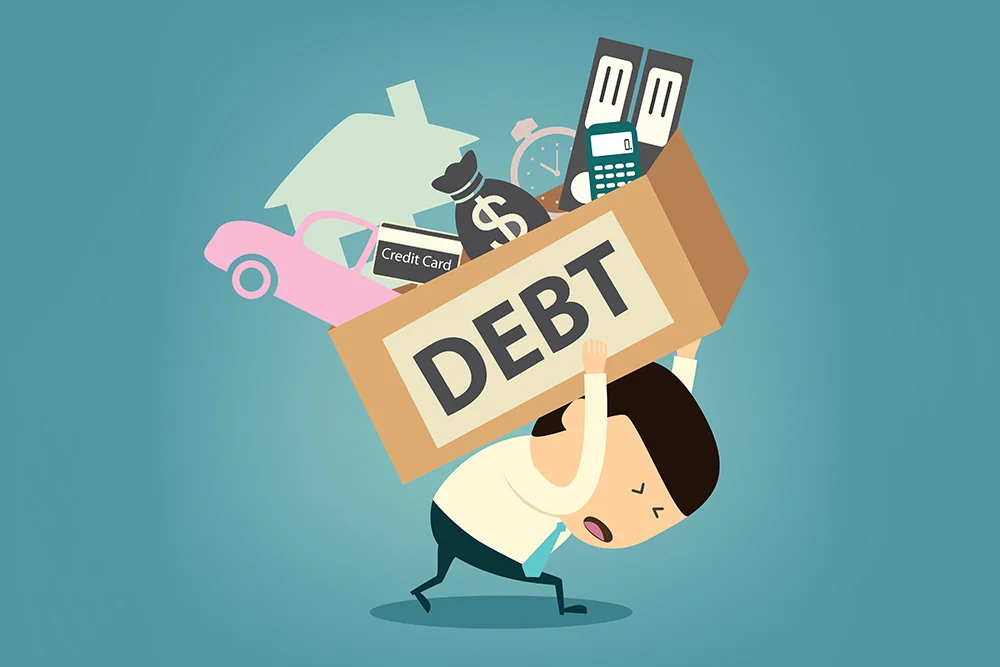Debt is a common part of life, whether it’s from credit cards, student loans, or mortgages. While debt itself isn’t necessarily bad, poor debt management can lead to financial stress and long-term instability. The good news? With the right strategies, you can take control of your finances and eliminate debt faster.
In this guide, we’ll reveal key secrets to successful debt management, helping you avoid financial pitfalls and achieve long-term stability.
Why Debt Management Matters 🏦

Managing debt effectively allows you to:
✅ Reduce financial stress – Avoid overwhelming monthly payments.
✅ Improve your credit score – Lower debt levels lead to a higher credit score.
✅ Increase savings potential – More money for future goals like buying a home or investing.
✅ Achieve financial freedom – Live without constant financial burden.
By applying smart debt management strategies, you can regain control of your finances and build a secure future.
1. Know Your Debt Situation 📝
The first step in managing debt is understanding what you owe. Make a list of:
- All outstanding debts (credit cards, loans, medical bills, etc.).
- Interest rates on each debt.
- Minimum monthly payments and total outstanding balance.
Once you have a clear picture, you can prioritize repayment based on interest rates and urgency.
2. Create a Realistic Budget 📊
A budget helps ensure that you’re living within your means and allocating enough money toward debt repayment.
🔹 Track your income and expenses.
🔹 Identify areas to cut back (e.g., dining out, subscriptions).
🔹 Allocate extra funds toward debt payments.
✅ Pro Tip: Use budgeting apps like Mint, YNAB (You Need a Budget), or Personal Capital to track your spending.
3. Follow a Debt Repayment Strategy 💰
There are two primary methods for paying off debt:
A. Debt Snowball Method (Best for Motivation)
Start by paying off your smallest debt first, while making minimum payments on the others. Once paid off, roll that payment into the next smallest debt.
✔ Pros: Quick wins keep you motivated.
✖ Cons: Doesn’t prioritize high-interest debts.
B. Debt Avalanche Method (Best for Saving Money)
Pay off high-interest debt first, while making minimum payments on lower-interest debts.
✔ Pros: Saves more money in interest over time.
✖ Cons: Takes longer to see results.
✅ Pro Tip: Choose the method that best fits your financial situation and motivation style.
4. Reduce High-Interest Debt 🔥
High-interest rates (especially from credit cards) can make it difficult to pay off debt. Here’s how to lower them:
🔹 Negotiate lower interest rates – Call your credit card company and request a lower rate.
🔹 Transfer balances – Consider a 0% APR balance transfer card (if you can pay off the debt within the promotional period).
🔹 Consolidate loans – A personal loan with a lower interest rate can simplify payments and save on interest.
5. Avoid New Debt 🚫
One of the biggest mistakes people make is continuing to accumulate debt while trying to pay it off.
✔ Use cash or debit for purchases.
✔ Limit credit card usage.
✔ Pause unnecessary spending until you have control over your debt.
✅ Pro Tip: If you must use a credit card, pay off the balance in full each month to avoid interest charges.
6. Build an Emergency Fund 💡
Unexpected expenses (like medical bills or car repairs) can force you back into debt. Having an emergency fund helps you stay financially secure.
🔹 Start with at least $500 to $1,000.
🔹 Aim for 3-6 months of living expenses over time.
🔹 Keep it in a high-yield savings account for easy access.
✅ Pro Tip: Automate savings to build your emergency fund faster.
7. Seek Professional Help When Needed 🤝
If you’re struggling with overwhelming debt, consider getting help from a:
🔹 Credit Counseling Agency – Nonprofit agencies can help you create a debt management plan (DMP).
🔹 Debt Settlement Company – Negotiates with creditors to reduce the total amount owed (but can impact your credit score).
🔹 Financial Advisor – Helps with long-term financial planning.
✅ Pro Tip: Always research and choose a reputable agency to avoid scams.
8. Stay Consistent and Patient 🏆
Debt repayment takes time and discipline. Stay consistent, track your progress, and celebrate small wins.
✔ Review your finances monthly.
✔ Adjust your budget as needed.
✔ Stay motivated by setting small goals (e.g., paying off one credit card at a time).
✅ Pro Tip: Keep a visual tracker (like a chart or app) to see your progress and stay motivated.
Final Thoughts: Take Charge of Your Financial Future
Managing debt doesn’t have to be overwhelming. By applying these smart debt management strategies, you can:
✅ Take control of your finances.
✅ Pay off debt faster and save money.
✅ Build a stronger financial future.
💡 Ready to start your debt-free journey? Let us know your biggest challenges and successes in the comments!